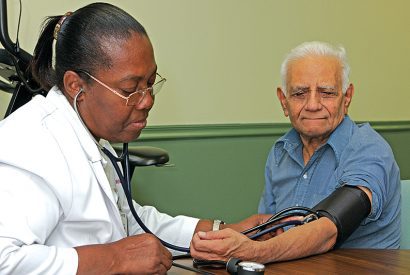Washington, D.C. – Bread for the World today expressed concern that 22 million people would lose their health care coverage by 2026 under the Senate’s Better Care Reconciliation Act of 2017 (BCRA). Included in the number are 15 million who would lose coverage from Medicaid. This would increase hunger and poverty in the United States.
“The Senate’s health care bill is no better than the House version,” said Rev. David Beckmann, president of Bread for the World. “This bill should not be passed because it will increase hunger and poverty. Twenty-two million people, including 15 million of the most vulnerable Americans, would lose their health care coverage.”
The BCRA would cut Medicaid funding $772 billion by 2026, according to an analysis released this afternoon by the Congressional Budget Office (CBO). It would also end the Medicaid expansion and enact deeper, long-term cuts to the program.
“Both bills are mean-spirited and cruel,” Beckmann said. “If senators truly care about the well-being of their most vulnerable constituents – the elderly, people with disabilities, and children — they will vote against this legislation.”



